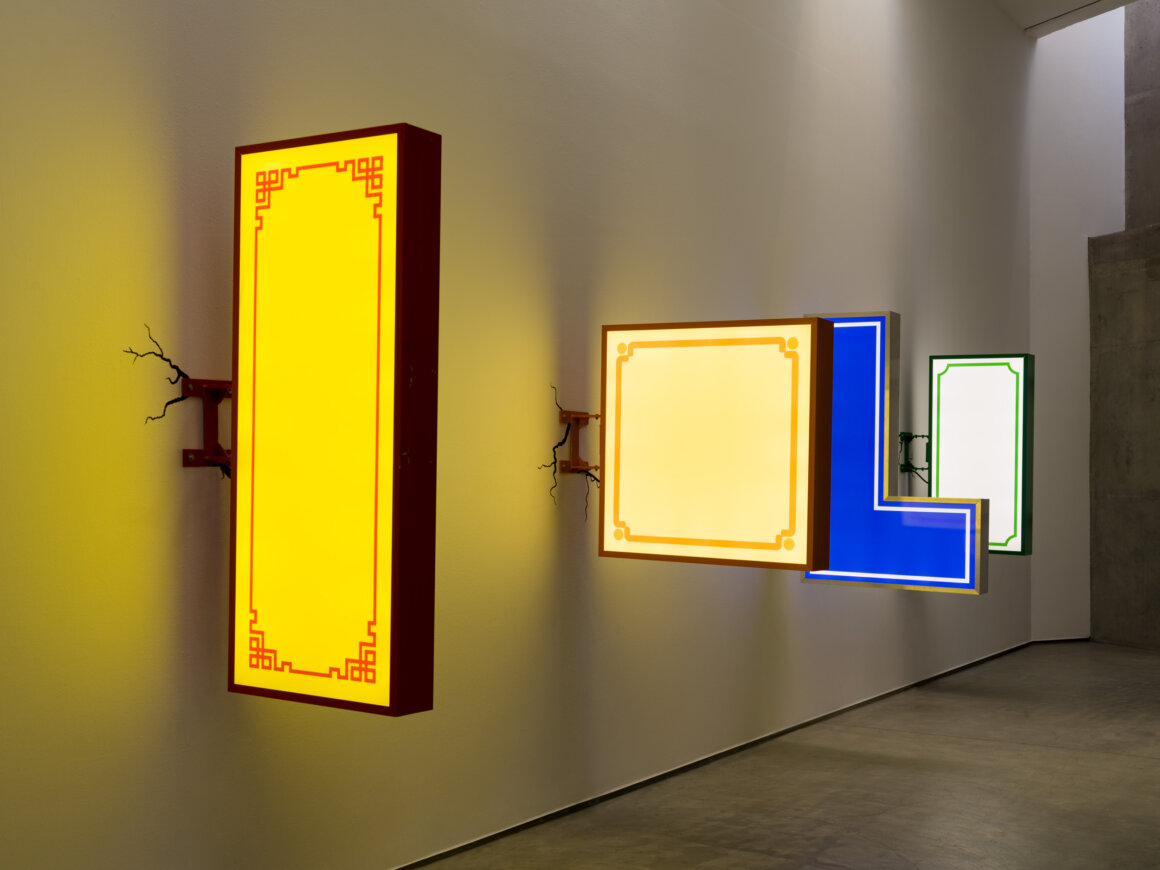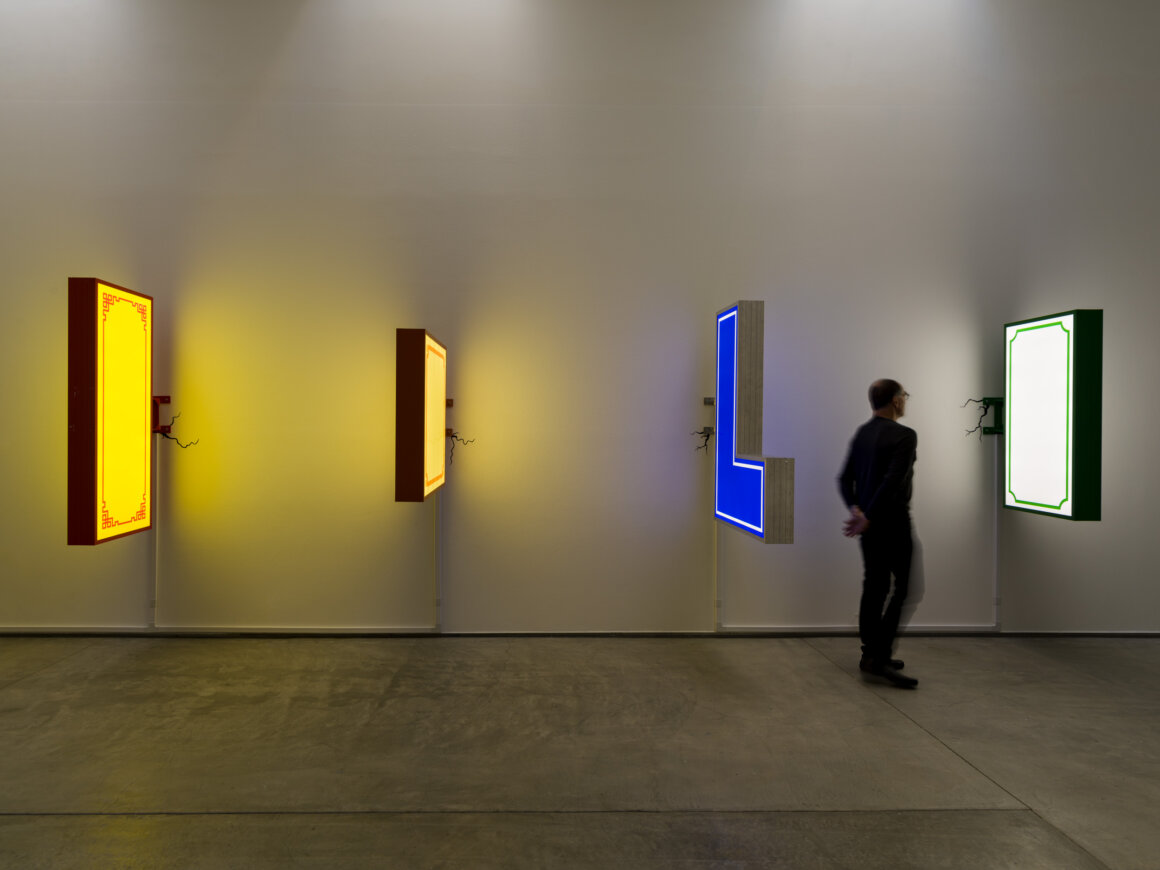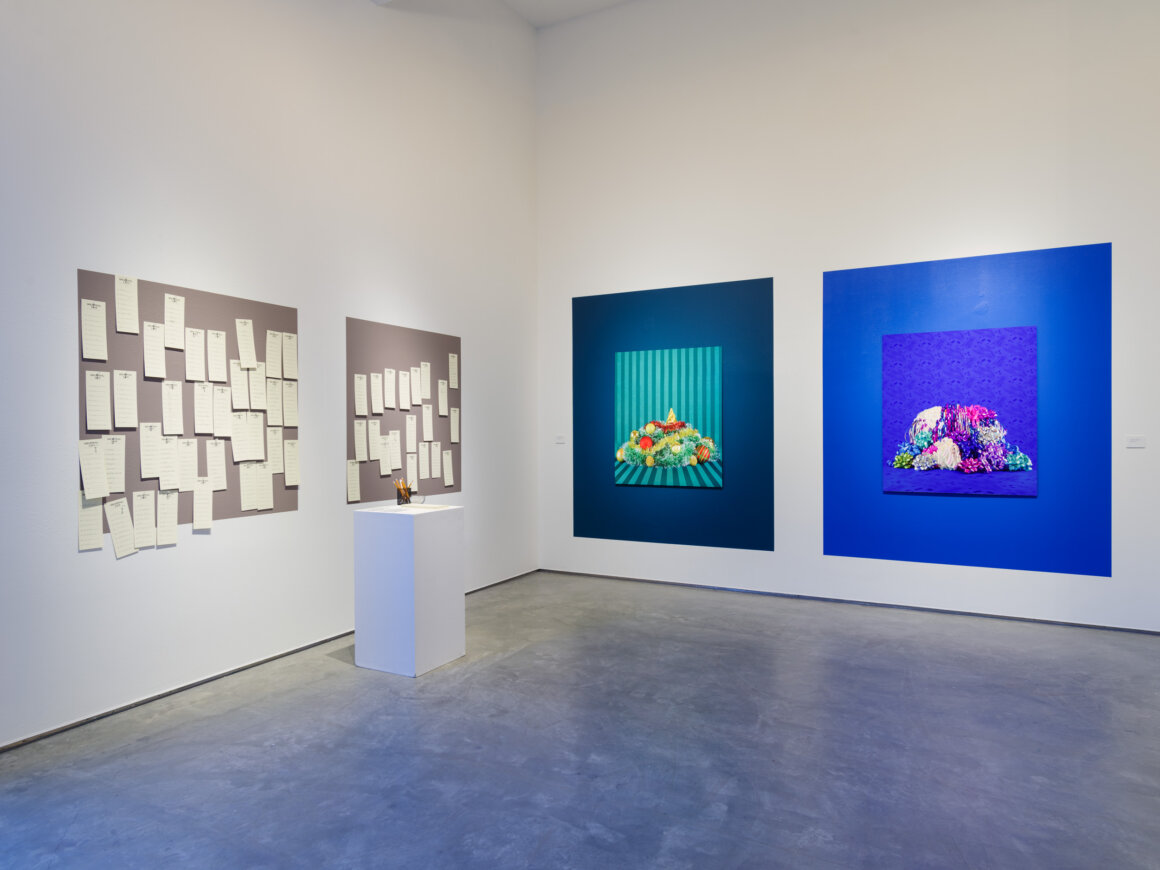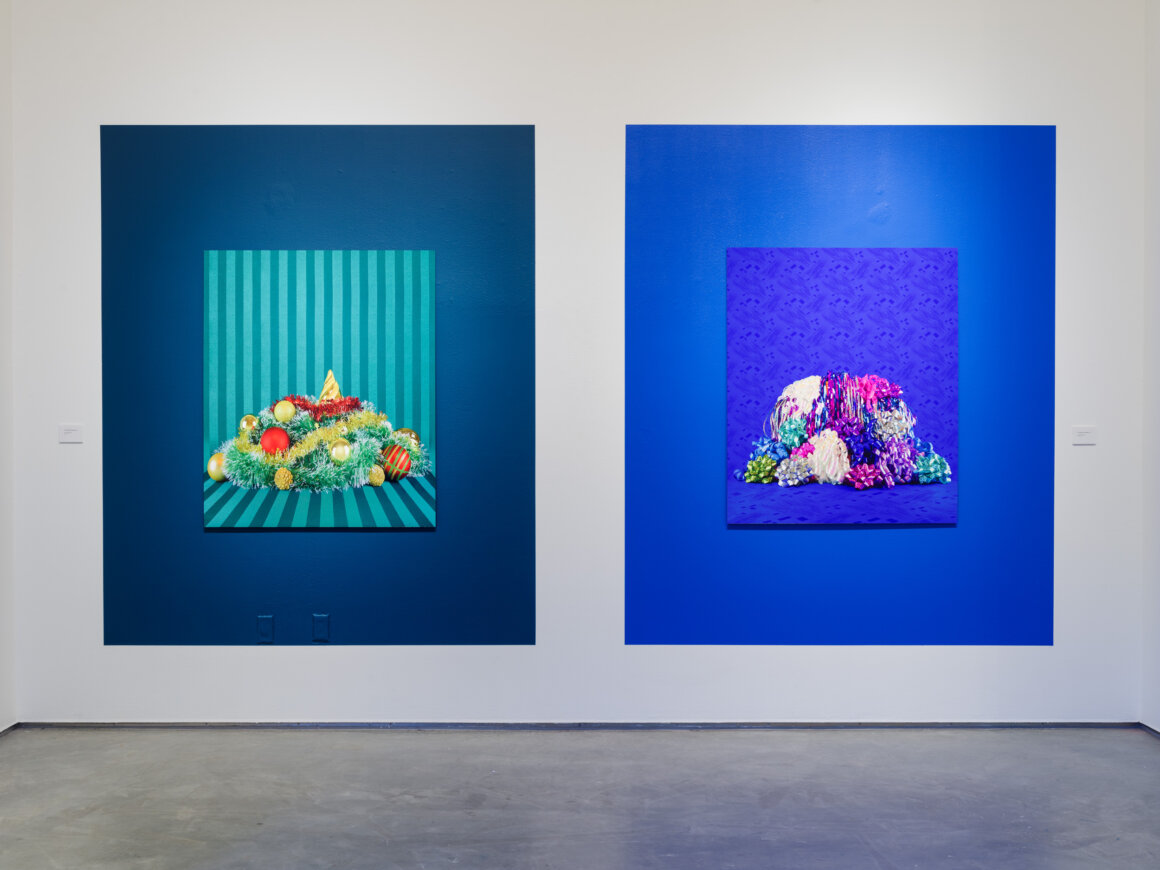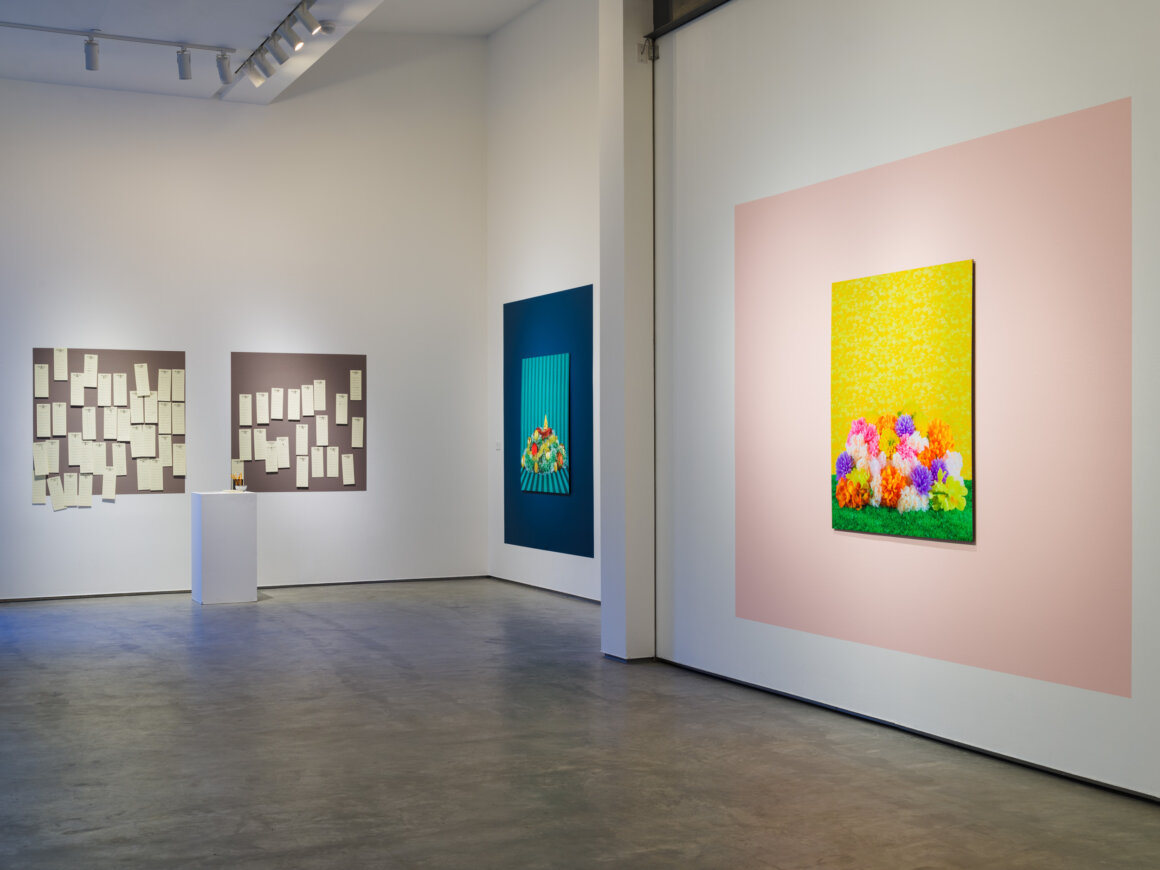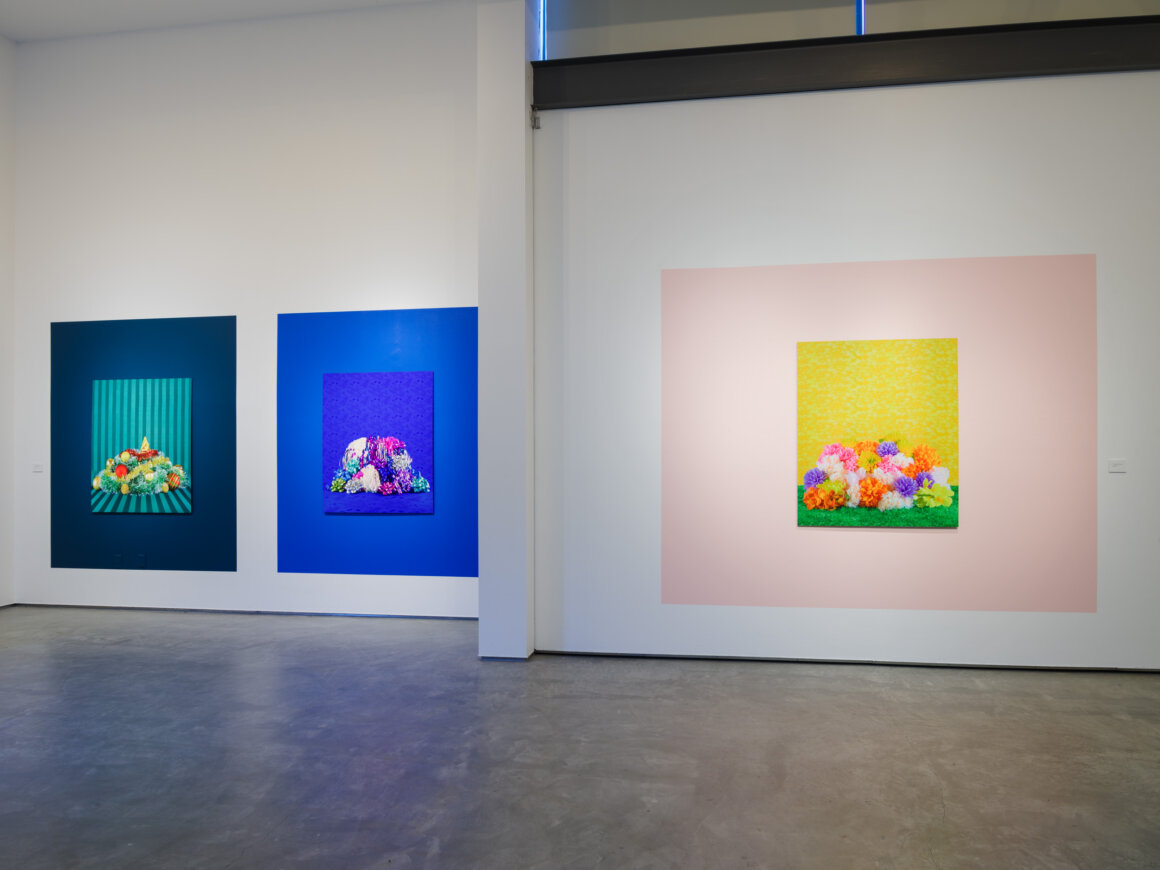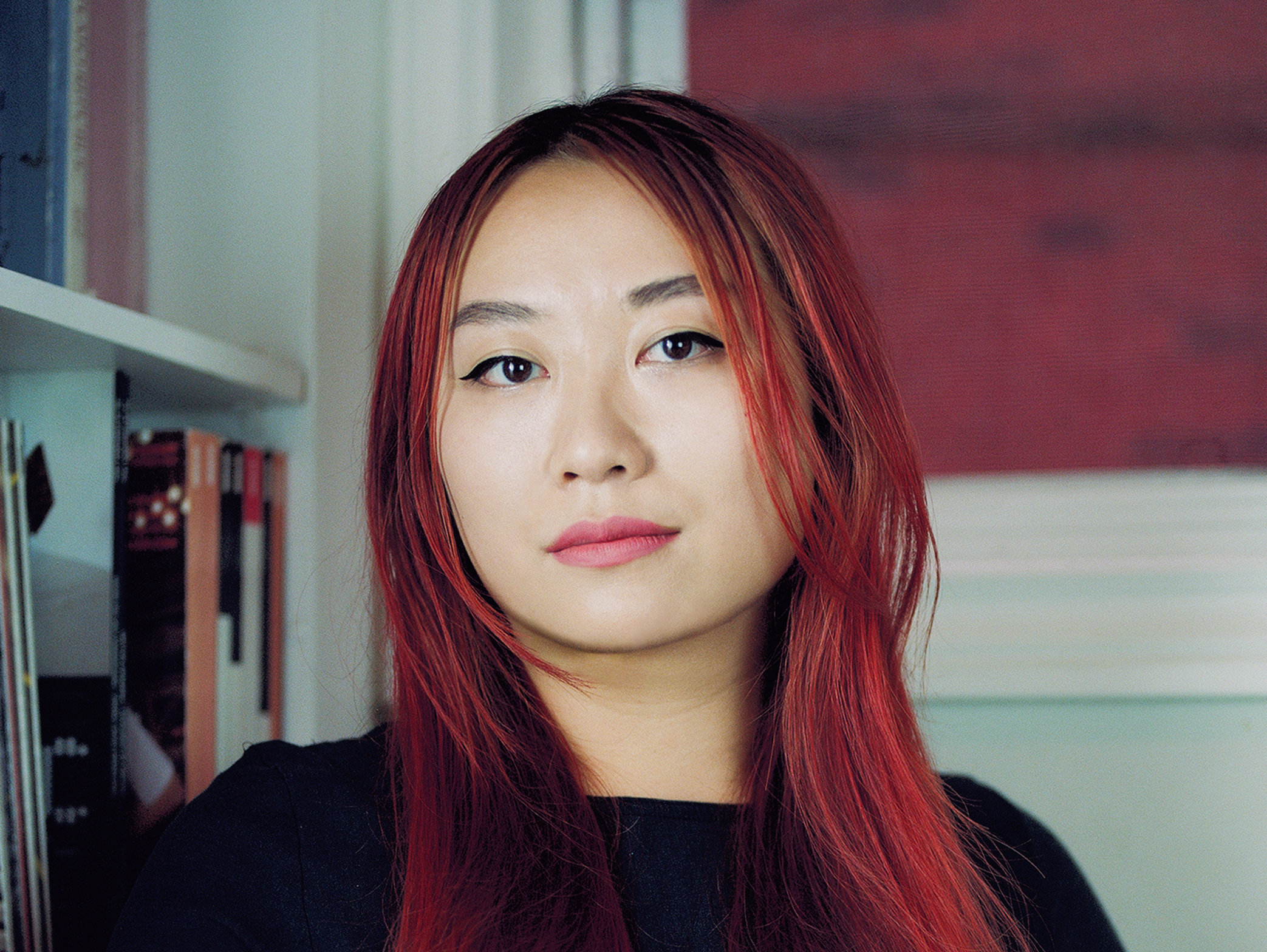About
Artist in Residence
In What We Bring and Leave, Shellie Zhang reflects on the shadows left behind in places whose magnetic pull once drew us together and how diasporic communities gravitate towards spaces that create belonging. As epicenters of cultural exchange, the marketspace is a foundation for the construction of identity and nationhood. Vibrant with cultural heritage, these sites are moments of anchorage for liminal identities to find kinship within a new landscape. What We Bring and Leave queries what it means when the signposts that attract us to a place – cultural signifiers of welcome and belonging – have disappeared and only traces are left behind. In this exhibition, Zhang explores past presences by drawing parallels between a vibrant international trading hub, in her Means of Exchange series, and the abandoned signposts of urban cultural landscapes, through Facades.
Means of Exchange is a series of still-life photographs capturing objects found in Canadian dollar stores. These objects come from Yiwu, China, the world’s largest wholesale market of small commodities. Yiwu has become a multicultural hub of international trade with the goods produced there being exported worldwide. As a center for cultural exchange, Yiwu has become a melting pot of cultures where the goods sold from this location represent different zeitgeists from all over the world. The words “Made in China” are purposefully averted and create a reversed diaspora in which the phrase, as well as the objects, drop their cultural specificity and become synonymous with “anything for anyone”. “Made in China” is shifting through a multicultural lens as the residual footprint of this dynamic cultural marketplace constructs a global sense of belonging. Zhang’s placement of these objects in a portrait of cultural consumption is an allusion to the dichotomy of this phrase, in other words, the assumed to be cheaply made and mass-produced object is revered through an art historical canon as culturally significant.
The Facades in the exhibition symbolize the signposts of an urban cultural landscape that has been abandoned. Either by force or personal decision, the empty signs tell the tale of a once lively epicenter – a place of cultural, economic, and political exchange. The sculptural lightboxes resemble the signs we come across when navigating pedestrian urban spaces. While the signs are empty, the colors and symbols of the structures carry the markers of what was there before. Something that is distantly familiar and welcoming. Noting the shifting landscapes within Chinatowns, Zhang uses the signs to consider what these transitions mean for diasporic communities. From what was before to what is to come, Zhang asks us to think about how architecture and places of exchange shape nationhood and identity.
__________
Meet the Artist Hours
During her residency at ICA San Diego, Zhang will be working on a new photo series titled, Grass is Greener On the Other Side. This project continues her investigation of what the things we buy reveal about our wants, needs and lives. Zhang is interested in the particularities that emerge in border contexts, and how the availability of goods may change from one side of the border to the other.
As part of her research process, Zhang is inviting visitors to the exhibition to share their shopping lists by writing them down and taping them to a wall in the gallery. Over the course of the exhibition, the wall will fill up with fragmented reflections of local lives–poetic snapshots that are both completely mundane and surprisingly intimate, creating a communal portrait of what residents’ eat, use, value, and prioritize.
In a one-of-a-kind opportunity, you will have the opportunity to meet Shellie at her studio in ICA while she is in residence from December 16, 2022 to January 15, 2023.
Dates:
ICA San Diego / North: Jan 7-8, and Jan 14, from 3:00 pm to 5:00 pm.
ICA San Diego / Central: Dec 22, 23, 29 and 30 from 3:00 pm to 5:00 pm.
__________
Shellie Zhang (b. 1991, Beijing, China) is a multidisciplinary artist based in Tkaronto/Toronto, Canada. By uniting both past and present iconography with the techniques of mass communication, language and sign, Zhang explores the contexts and construction of a multicultural society by disassembling approaches to tradition, gender, the diaspora and popular culture. She creates images, objects and projects in a wide range of media to explore how integration, diversity and assimilation is implemented and negotiated, and how manifestations of these ideas relate to lived experiences. Zhang is interested in how culture is learned and sustained, and how the objects and iconographies of culture are remembered and preserved.
Zhang has exhibited at venues including WORKJAM (Beijing), Asian Art Initiative (Philadelphia) and Gallery 44 (Toronto). She is a recipient of grants such as the Toronto Arts Council’s Visual Projects grant, the Ontario Arts Council’s Visual Artists Creation Grant and the Canada Council’s Project Grant to Visual Artists. She is a member of EMILIA-AMALIA, a feminist reading and writing group. In 2017, She was an Artist-in-Residence at the Art Gallery of Ontario. In 2021, she was a recipient of the Toronto Friends of the Visual Arts Artist Award. Her work has been published in Canadian Art, the Toronto Star, Blackflash Magazine, CBC Arts, and C Magazine. Recent and upcoming projects include exhibitions at Mercer Union (Toronto) and Capture Photography Festival (Vancouver). Zhang works with Patel Brown Gallery.
__________
This exhibition is generously supported by


